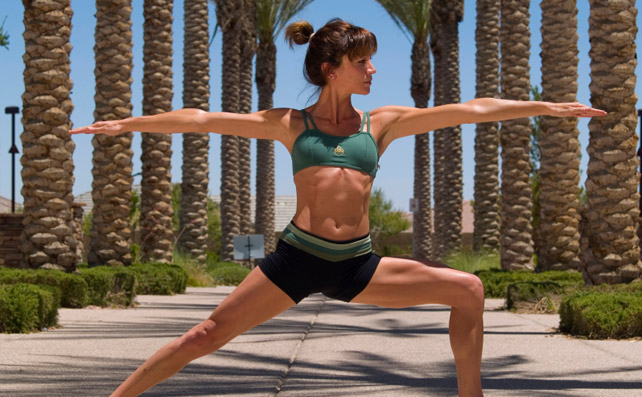Our physiotherapists are highly trained in treating a large variety of conditions. We work with our patients to not only treat the pain, but also to identify the cause of the pain and manage it where possible.
We also hold regular internal knowledge-sharing meetings where our physiotherapists discuss and brainstorm different treatment options for patients with difficult problems.
Click on each of the conditions below for more information.

Back and neck pain is one of the most common complaints we see at our practice. Sitting at a computer can often cause neck pain with accompanying headaches and shoulder tightness, and back pain with buttock or leg pain. Often these problems can be helped with treatment and simple advice and exercises.
Other common causes of back and neck pain include:
- Muscle strain
- Sciatica
- Lumbar disc herniation
- Poor posture
Our physiotherapists are experienced at treating all types of sporting injuries – from the recreational runner right through to professional athletes. We treat knee problems including patellofemoral pain, hip and groin problems, shoulder injuries including bursitis and associated tendinopathy, tennis elbow, wrist and ankle sprains and foot problems including plantar fasciitis.
Sandra has completed postgraduate studies in Sports Physiotherapy with Sports Medicine Australia and has provided sports coverage for football, netball, Tae Kwon Do, the World Gymnastics and Masters swimming.
Megan has a Bachelor of Applied Science (Human Movement Studies) and a degree in physiotherapy. She worked as an exercise scientist and personal trainer at a fitness centre before studying physiotherapy.
We can give you advice on minimising further damage and pain from a sports injury and get you back to normal activities faster.
Headaches and migraines are often triggered by neck pain or stiffness. In this instance, our physiotherapists can offer great relief through treatment, along with strategies to help minimise the headaches.
It can also be helpful to combine treatment with a customised physiotherapy exercise program to build strength in the neck and, ultimately, reduce the frequency and severity of the pain. Dry needling (using acupuncture needles) can assist to reduce the pain of muscle spasm.
Allyson, Megan and Sandra have studied the Watson Headache® Approach, and all our physiotherapists are trained to assess whether your headaches may respond well to treatment.
Muscle strains or tears can be caused by:
- accidents when the limb moves too far for the muscle to adapt
- overuse from repetitive movements
- constantly being in an awkward or inefficient position because of bad posture or incorrect or difficult working requirements.
Whether the cause is a sudden tear, a strain, or a muscle imbalance issue, physiotherapy can help by promoting efficient healing, assisting strong scar tissue formation, or strengthening and stretching affected muscles.
If massage only helps temporarily, the underlying joints should be assessed and treated by a qualified physiotherapist.
If the problem with the muscle is chronic tenderness and tightness, the muscle is often being overworked. It is important to get to the cause of this; the treatment may involve re-training and strengthening surrounding muscles to help the overworked muscle. Dry needling can assist in settling pain and muscle spasm.
We commonly treat sprained ankles, sore knees and painful shoulders. We’re also experienced in treating tennis elbow, sprained wrists and fingers, SIJ (sacroiliac joint) problems, hip joint, groin pain and jaw pain.
Most joint strains respond very well to physiotherapy enabling faster return to sport, work or normal daily activities. We also provide advice on how to strengthen the surrounding areas, manage tasks at work, and what home help may be necessary to prevent further injury.
Physiotherapy can offer safe, gentle and effective treatment for joint strains and aches by:
- using rhythmic joint mobilisation, which can restore pain-free movement
- massage to enhance recovery
- trigger point therapy and dry needling to alleviate muscle spasm
- exercises to strengthen and prevent recurrences.
It is important to determine the cause of the problem and to enable patients to self-manage their problems at home.
Many people will experience some level of osteoarthritis as they get older, but the severity can vary from a bit of morning stiffness, to occasional painful episodes, to major debilitating pain. Physiotherapy can offer immense improvement and, in many cases, complete and long-lasting relief from pain. Strengthening the muscles is of paramount importance to aging joints to keep them moving in an ideal alignment to reduce pain and improve function. You may also be interested in our GLA:D® Program.
Remember, just because your X-ray or scan shows joint damage, it doesn’t mean you will have pain forever.
Physiotherapy aims to:
- restore motion in stiff joints by gentle mobilisation or gliding movements
- restore muscle balance by strengthening weak muscles and stretching tight muscles
- relax sore or overworked muscles by massage, trigger point therapy or dry needling
- prevent further pain by advising on exercise, activities, posture and ergonomics.
If you are unsure whether physiotherapy can help you, please come and see us for an assessment. Even if we cannot ease your pain, we can give you appropriate and specific strengthening exercises. Research has shown that the pain of arthritis improves with exercise.
Overuse injuries generally respond well to physiotherapy, but the key is to get treatment early, rather than put up with the pain. Problems such as RSI, tennis elbow and Achilles tendinopathy (a tendon injury) can heal quickly with a specific exercise program. Treatment includes the areas surrounding the painful area, as other muscles are often affected.
Treatment for tendinopathy (commonly of the shoulder, hip, patella, Achilles tendon, plantar fascia) involves a program of very specific exercises that are progressed or adapted carefully depending on symptoms. (This follows the latest research findings.)
We can treat pain and stiffness in the chest, thoracic spine and rib areas. We can also advise in relaxed breathing exercises.
Pain in the body is often the result of poor posture. The body moves most efficiently when it is in a good posture where the head is directly on top of the body. If the chin is poked out, the shoulders hunched forward and the torso slouched, the muscles and joints are all working at a disadvantage.
We can assist you or your children to improve the body’s posture by showing you how to stretch tight muscles, strengthen weak muscles and improve endurance in these muscles. We are experts in core stability, utilising the deep muscles in your torso and neck to help hold you in a good posture.
Our physiotherapy exercise sessions (previously called 'Pilates classes') are a fun and active way to improve your posture as the body re-learns good positioning through repetition of ideal movements during the sessions.
Growing pains are often caused when the bones are growing quickly and the soft tissues around them struggle to keep up. Often a good stretching and strengthening program and some local heat is all that is needed to ease this pain. Children and teenagers often respond very quickly to treatment. If they continue to complain about persistent pain, medical assessment may be necessary.
The pelvic floor is the group of muscles at the base of your pelvis, stretching right across from your pubic bone to your tailbone and side-to-side.
Sandra is experienced in assessing and treating basic pelvic floor problems such as stress incontinence (urine leaking when you cough, sneeze or laugh – which should not be considered normal at any age or after having children), weak pelvic floor (that contributes to discomfort with prolapse), and bladder urgency and frequency.
An initial consultation is 45–60 minutes and does not involve a vaginal examination. We take a thorough history and check the ability of the pelvic floor to lift by real time diagnostic ultrasound. The sound head goes on your lower abdomen over your bladder.
Treatment involves teaching you basic pelvic floor exercises, advice on good bladder habits and, if necessary, advice on bladder re-training. We also give you a copy of Women’s Waterworks by physiotherapist, Pauline Chiarelli.
Sandra only treats female pelvic floor problems and is happy to assist transgender women.

Research by the University of Queensland has found that a number of the muscles in and around the core require specific exercises after injury in order to return to normal, so basic exercise is often a key part of our treatment plans. Some of our patients also choose to do physiotherapy exercise sessions with us, to further their recovery and prevent future injury.
We understand that life gets busy, so if your exercises have dropped off your radar, please feel free to return for a guilt-free consultation and update of your exercise program.
Contact Us